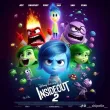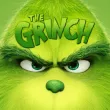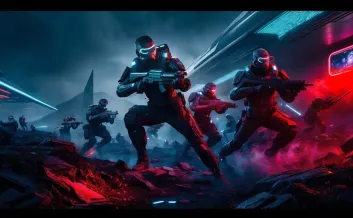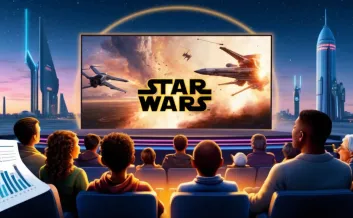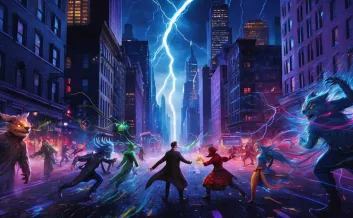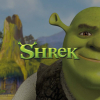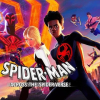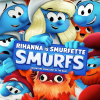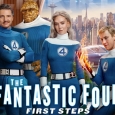
The Fantastic Four: First Steps
Walk into “The Fantastic Four: First Steps” and you step not only into a theater, but seemingly into a radiant timeline that Marvel never before dared to fully explore. This isn’t just a new beginning for Marvel’s First Family—it’s a confident act of cinematic world-building that spins the timeless team through a prism of stylized possibilities and daring ideas. Rather than rehashing the stories (and stumbles) of previous adaptations, director Matt Shakman, the creative minds at Marvel Studios, and a pitch-perfect cast use this long-awaited debut of Phase Six to challenge what it means to be both heroic and hopeful in the 21st century.
Inventing the Future — Again
What first leaps out about “First Steps” isn’t bombast, but vibrant imagination. The retro-futurist world on display is more than background; it’s a character. Urban skylines glint with the kinetic optimism of mid-century concept cars and Tomorrowland skyscrapers. Hovercars whip through the air, neon hues bleed into chrome, and the Baxter Building becomes a beacon—a playful temple to science without cynicism. Everything from the color palette (soft blues, electrifying oranges, metallic greens) to the lived-in practical sets feels painstakingly engineered to answer one simple question: “What if the world had never lost its faith in a better tomorrow?”
This setting isn’t just visual indulgence. It shapes the narrative. The Fantastic Four aren’t suspicious outsiders—they’re adored, trusted, and burdened as the architects of the peace that reigns. Their challenges matter more because the world depends on their innovations, not just their powers. Every street shot, every zoom through Reed’s bizarre lab, and every breakfast scene radiates a sense of science as community service. That mood seeps into every element of the film, from the costumes (with unexpected nods to high fashion and practical uniforms) to the perennial hum and click of machines.
Ensemble Dynamics, Earnestly Rendered
Pedro Pascal lends Reed Richards an awkward warmth and underlying anxiety. Here, Reed isn’t a cold genius—he’s the friend who never sleeps, who nervously triple-checks every calculation because the stakes are universal. His chemistry with Vanessa Kirby’s Sue Storm forms the story’s emotional pillar. Kirby’s Sue, not content as “the glue,” is as resolved as she is uncertain—her struggles with impending motherhood and world leadership are played with rare vulnerability and steel.
Ebon Moss-Bachrach’s Ben Grimm is a revelation; the motion capture tech is so natural you forget the digital at all. This Ben is as quick with a dry comeback as with a protective gesture, and his sense of loss—set against the all-embracing optimism—is almost poetic. Joseph Quinn banishes any memory of Human Torch clichés, recasting Johnny Storm as a genuinely funny, occasionally reckless, but deeply self-aware adventurer. Together, these four don’t play at “family”—they’re a complicated, mutually sustaining unit, bristling with friction and love.
Bigger Than Any Villain: Scale and Stakes
Galactus, as imagined by Ralph Ineson, dominates more than just headlines—his arrival in this universe is less invasion, more celestial inevitability. He’s haunting rather than monstrous, shot in awe-inspiring wide frames that make the world feel small and precious. Julia Garner’s Shalla-Bal/Silver Surfer is another standout, a force of melancholy and cosmic resignation whose dilemma is both personal and philosophical, her scenes cut through the epic with wordless gravitas.
What’s striking is the film’s structural confidence—no tired “team comes together” formula, no origin flashbacks. Instead, the script lets us feel the wear-and-tear of victory and responsibility. Reed and Sue’s debate about their unborn child—whether a hopeful world is truly safe, or just temporarily spared—is as tense as any confrontation with Galactus.
Sonic and Visual Alchemy
Jess Hall’s cinematography crafts a world that is both dazzling and coherent; each scene is tightly composed, color-graded to a dreamlike polish, but never sterile. In-camera effects dominate, giving everything grit and texture, while CGI is reserved for only the truly impossible—like the planetary shadow of Galactus or Shalla-Bal’s shimmering traversal of the stars.
Michael Giacchino’s musical score is a quietly radical move. There’s little “anthemic” bombast; instead, we’re treated to a suite of melodic echoes and refrains, motifs that subtly adjust as the team’s fortunes turn. The Future Foundation’s theme, a sprightly blend of synth and brass, will have viewers humming long after they stream or download the film.
The Takeaway
“First Steps” isn’t simply a good superhero movie—it’s a brilliant act of MCU reinvention, finding room in spectacle for questions of legacy and courage. Every frame and note is a handshake with possibility, and this Fantastic Four—finally—earns the name. Those ready to watch, stream, or download online will be rewarded not merely by action and effects, but by a story that’s as hopeful and unafraid of new frontiers as its heroes. For Marvel, and its audience, it’s a much-needed first step into something genuinely new.
How to watch The Fantastic Four: First Steps online
After its theatrical release on July 25, 2025, “The Fantastic Four: First Steps” will land on Disney+ (subscription required) for streaming and download. Digital purchase and rental via Amazon Prime Video and Apple TV will follow soon after, offering streaming and download. Hulu and Peacock could join the list later depending on licensing schedules. Initial launches will require subscription or payment—free or unblocked options will take extra time to reach the web. The film carries a US PG-13 age rating for science fiction action and emotional themes.
- Philosophical pacing and subtle drama may not satisfy “action-only” fans;
- Supporting characters sometimes too quickly sidelined (H.E.R.B.I.E. being a notable exception);
- The 1960s alternate universe may confuse those seeking more classic MCU crossovers;
- No prolonged origin flashbacks may leave a few origins-curious first-timers disoriented;
- Remarkably original world-building—retro-future vision feels utterly fresh;
- Impeccable, character-driven script centers on human hope and vulnerability;
- Main cast performances are subtle, authentic, and even daring in their emotional honesty;
- Galactus and Silver Surfer are rendered with mythic, almost philosophical complexity;
- Practical effects and production design immerse the viewer in texture and scale;
- Score and soundscape feel integrated, memorable, and narratively motivated;
- Shakman’s refusal to follow origin-tale templates pays emotional dividends;
- Family and societal stakes make for genuine suspense and payoff;

